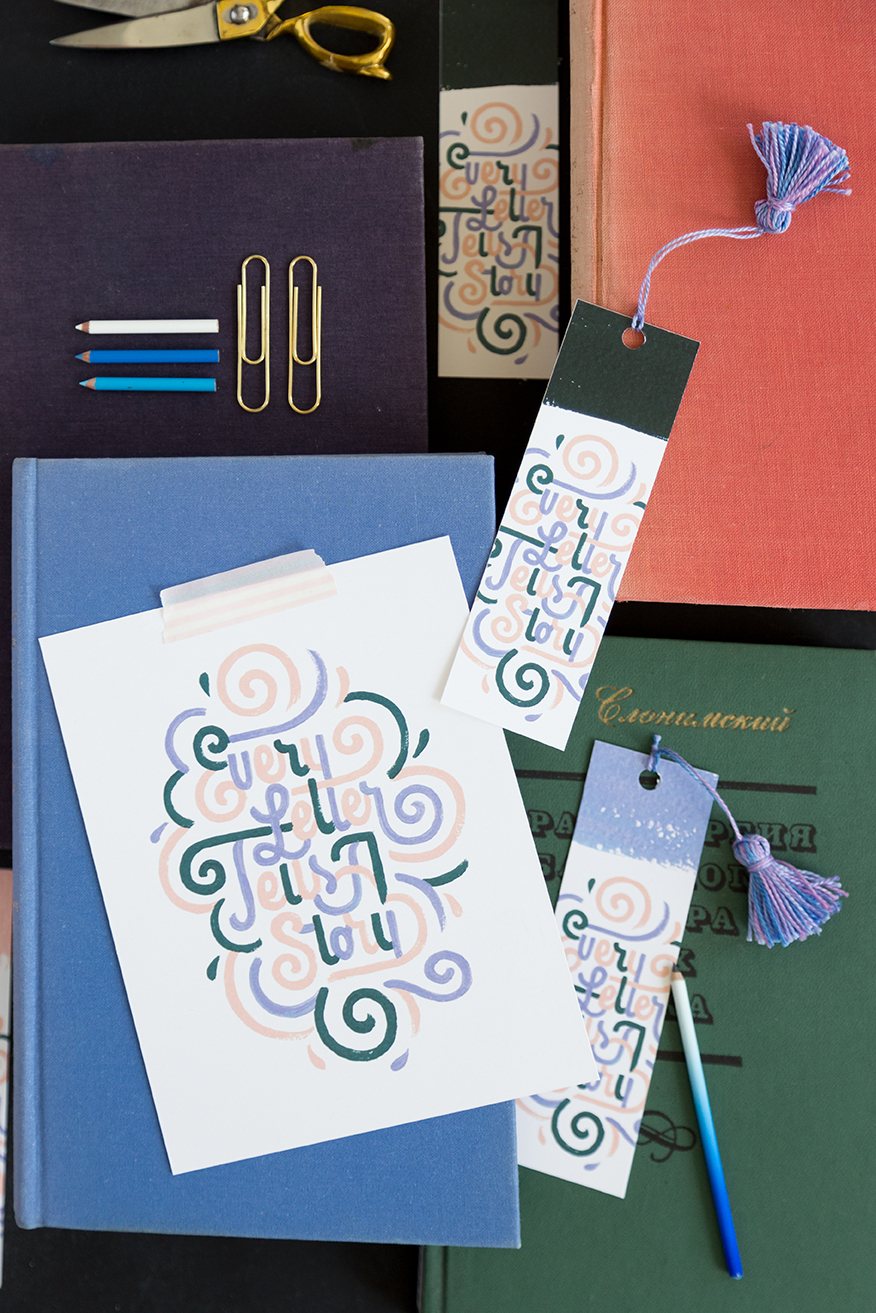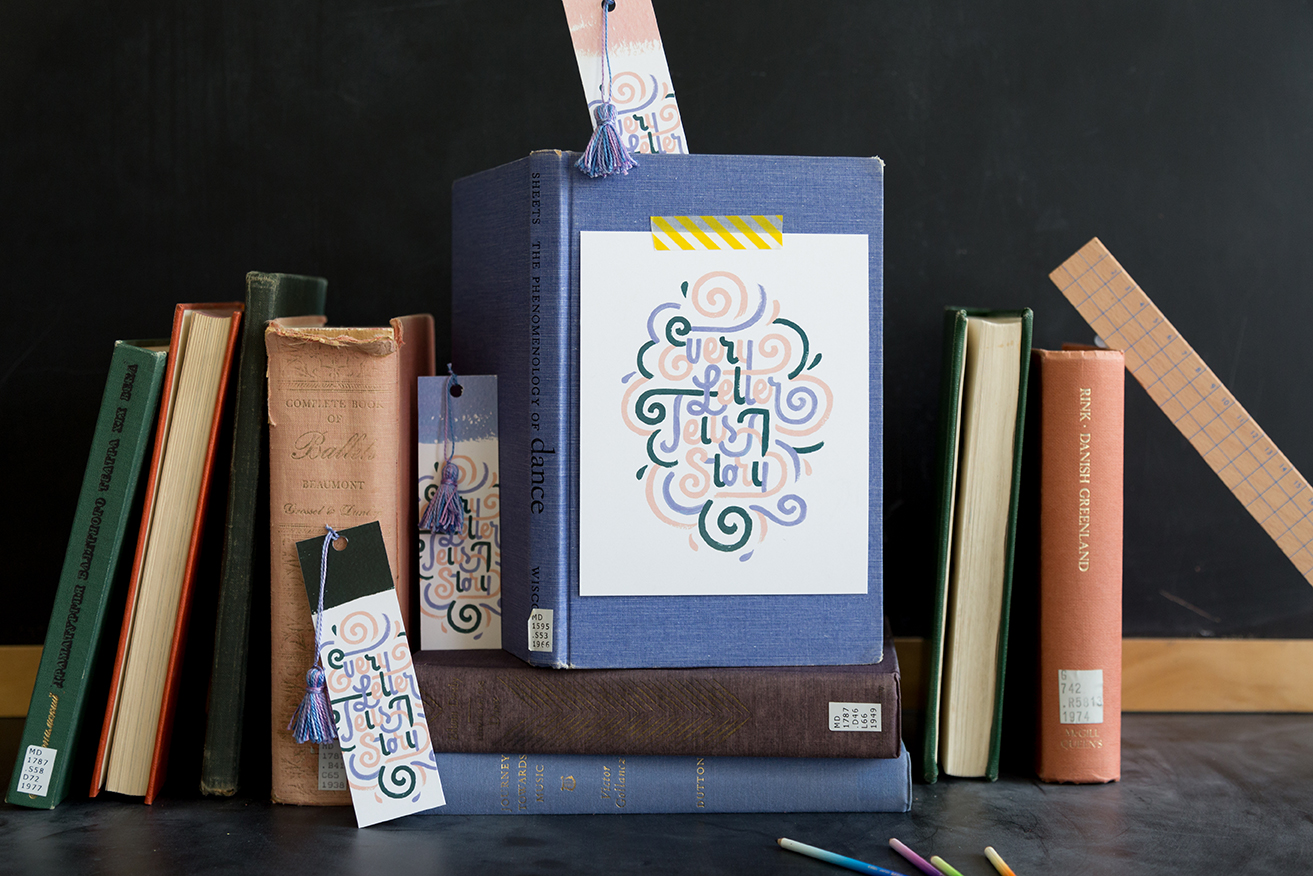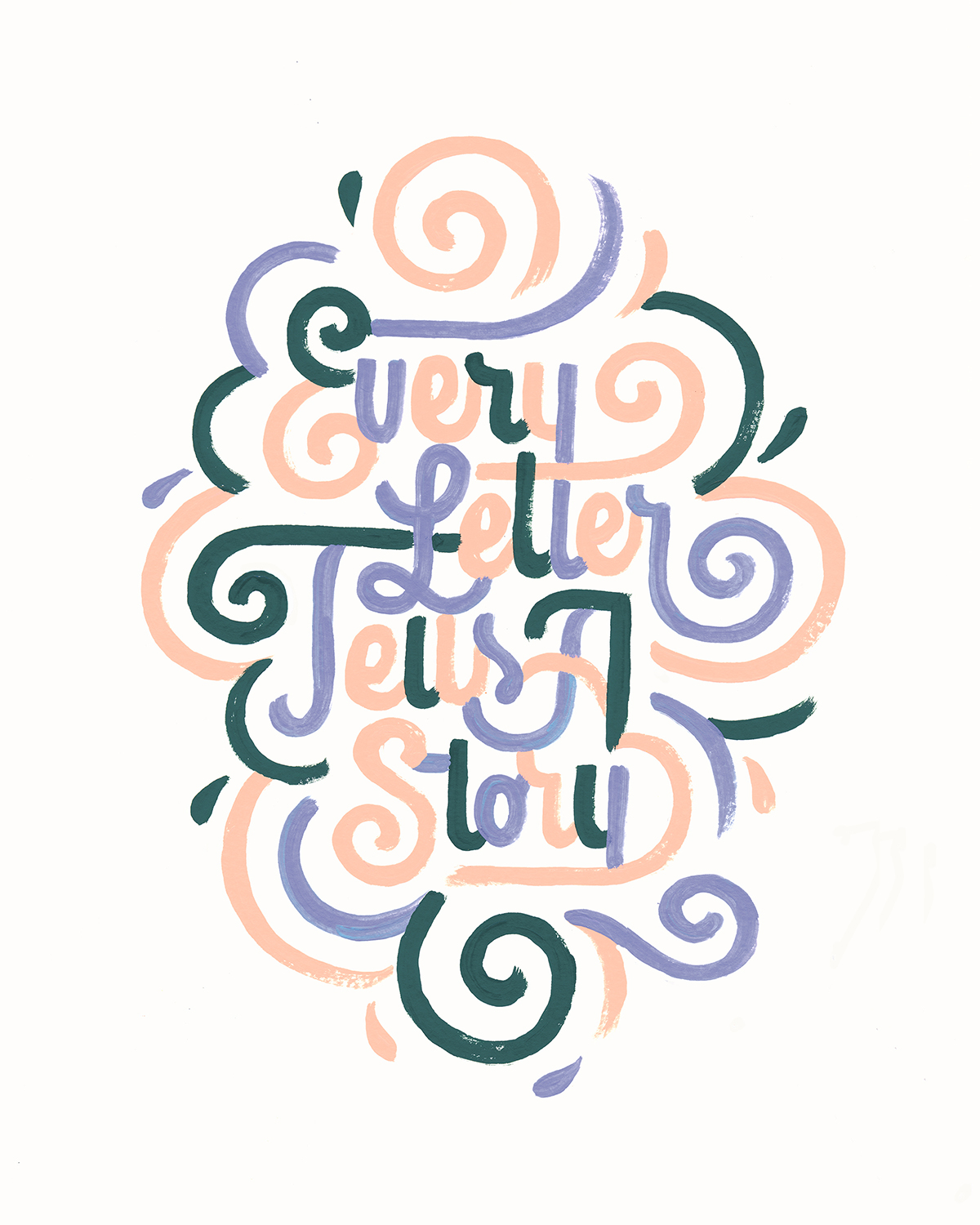
This month we have partnered with letter artist, Jill De Haan, to create a beautiful quote from the book: “Every letter tells a story.” It’s available as a free printable as well as a bookmark in three different colors. Downloads below!
1. Rosen mentions several times the power and ownership associated with those who could read and write. For centuries, there were few people who could – “priests, the makers and executors of laws and punishments, and accountants, mostly.” As a written language came into being (and then the printing press, which lowered costs and increased distribution), that power was put into the hands of every person. Do we even realize the power we have in our hands as we “write” on our tablets and phones, as we text and change the “smallest building blocks” of our written language, as we record images and speech and transmit them all over the world? What do you think? How do we choose each and every day how we use our alphabet and language?
2. “An alphabet is a stunningly brilliant invention,” Rosen simply states on page 5. Is that an understatement or what? Though matching squiggles to sounds “seems obvious to us, it was not how humans first invented writing. The first writing was a form of drawing. Matching signs to speech comes later.” Besides our (English) alphabet, Braille, Morse code, and Pitman shorthand are just a few inspiring examples of the lengths humans will go to be able to communicate – and preserve that communication when they couldn’t record or play it back like we can today. Did a certain chapter or topic really open your eyes?? Make you grateful for our written alphabet and language? Share your thoughts!
DOWNLOAD the free printable quote and bookmarks here
Further reading:
Letter Perfect: The Marvelous History of our Alphabet from A to Z by David Sacks
Alphabetique, 26 Characteristic Fictions by Molly Peacock (Fanciful and pure fun, this is a fictional story for every letter!)
by Julie Richardson | Photography by Anna Killian | Artwork by Jill De Haan




